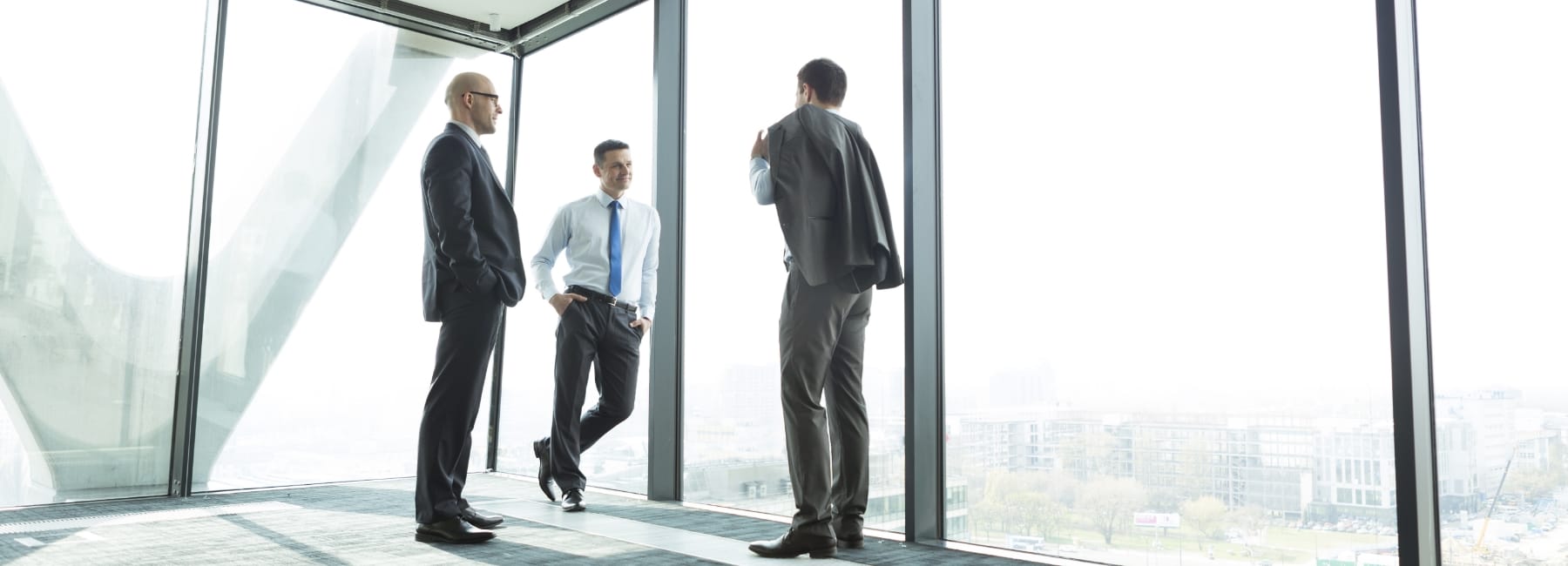Business Content
The Pros and Cons of Buying and Leasing Commercial Property

Buy or lease? It’s a major decision that many small businesses face when it comes to acquiring real estate.
As with all things in entrepreneurship, no one right answer fits everyone – your choice will depend on your company’s specific goals and capacities.
As enterprises evolve, so does their need for space. And while you’ve surely heard of the three most important considerations in real estate – location, location, location – it’s also essential to understand the various pros and cons of buying versus leasing commercial property. As with all things in entrepreneurship, no one right answer fits everyone – your choice will depend on your company’s specific goals and capacities.
To help get you started, consider the following advantages and drawbacks.
Buying Commercial Real Estate
Owning your own property has its benefits, but nothing in business comes without a price.
Pros
- You’re able to build equity, which can secure low-interest loans down the road and help you to launch your next big growth project.
- Property can be a sound long-term investment if it increases in value. Commercial real estate has historically delivered high ROI.
- You may be able to take advantage of tax breaks for annual depreciation and interest. Consult your tax accountant for details.
- Owning property eliminates your exposure to rental market fluctuations, which can sometimes show up as big rent hikes.
- Your monthly costs are generally more predictable, making it easier to perform long-term financial forecasting.
- You can adapt the property to suit your firm’s particular needs and goals without worrying about violating lease terms.
- You can lease out extra square footage to maximize space efficiency and establish a secondary income stream.
Cons
- Your up-front expenses are often higher, including a down payment (which is typically heftier than for single-family homes) and closing costs.
- You will likely have less liquid cash available for other essential business expenses like payroll, equipment, inventory, and marketing.
- Commercial property isn’t immune to broader economic trends, and if your property value depreciates, you may experience a capital loss.
- You’ll be responsible for all maintenance, which costs both money and time. Expect to pay at least 1% of the property value each year.
- You may have additional legal responsibilities, like liability insurance. Consult your attorney or broker for more information.
- You may not require all the space that many commercial properties offer, and you don’t want to pay for more square footage than you need.
- You need to consider zoning and other restrictions if you wish to expand. Do your homework and consult local ordinances.
Leasing Commercial Real Estate
Leasing can be a more flexible and affordable option, particularly for newer firms, but it has its downside.
Pros
- It might be easier to qualify for a lease than for a mortgage, especially if your business doesn’t have a long credit history.
- You may be able to occupy a site in a prime location (like a high-traffic retail area) that would be too expensive to purchase.
- Depending on the length of your term and the flexibility of the property owner, you may have more freedom to grow and downsize according to cycles and trends.
- You can retain liquid capital and keep your lines of credit open, so you have greater latitude to pursue other goals.
- You may be able to deduct rent payments as a recurring business expense. Consult your tax accountant.
- If you’re offered a renewal at the end of your lease, you can reassess and decide whether to stay or relocate.
- You typically won’t have to worry about repairs, which can be a major expense and a distraction from mission-critical tasks.
Cons
- Commercial leases aren’t subject to the same consumer protection laws that govern residential leases, so caution is needed.
- Leases may be costly to renew, and you can’t always predict the increase unless some form of rent control is in effect.
- If you close or refocus your business, you’ll have to continue paying rent or locate a subletter, which could take some time.
- You might have to relocate at the end of your lease if the owner decides to sell or renovate, and you might not get enough warning.
- Though up-front expenses may be lower, you’ll probably have to pay a security deposit as well as brokerage and attorney fees.
- Depending on your specific lease terms, you may not be able to sublease unused space, which could make rightsizing a challenge.
- If you make lasting improvements to your space on your own dime, the property owner keeps the benefits.
Keep Growing
Before you decide to buy or lease, you may want to consult an attorney or tax professional who can help you evaluate how the above considerations and other factors apply to your situation. And when it comes to borrowing and banking, you need a trusted partner who understands the unique needs of small businesses. Reach out to your financial institution to learn more.